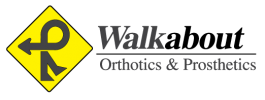The choice is yours.
When choosing an orthotist or prosthetist, you will want to select one who has a high level of technical knowledge and skill fabricating and/or fitting orthotic or prosthetic devices.
Practitioners who have been certified by the American Board for Certification (ABC) have demonstrated their abilities in these areas by qualifying for and passing a rigorous examination process. There are nearly 3,100 certified practitioners nationwide.
What is ABC and how do you know a practitioner is certified?
In 1948 the American Board for Certification in Orthotics and Prosthetics, Inc. (ABC) was founded to encourage and promote high industry standards and to develop competence and professionalism.
Practitioners whose education and experience meet ABC requirements are eligible to take the examination. Those who pass receive certificates in their discipline. These must be renewed each year to maintain good standing.
In addition, practitioners certified by ABC since 1987 must fulfill certain recertification requirements every five years. Each practitioner must receive 75 credits of continuing education every five years or 100 credits every five years for dual certification. A certified practitioner can be identified by the credentials CP, CO, or CPO. Certification may be in prosthetics (CP), orthotics (CO), or both (CPO).
What else is important?
Choosing an orthotist or prosthetist is a very individual decision. However, consideration of the following factors may help you to narrow the field:
Experience, education, and technical skills
- When an ABC certified practitioner is consulted, you can be assured of receiving your rehabilitative care from someone who has met the high and detailed standards determined essential by ABC.
- In addition, only practitioners who are ABC certified are invited to become members of the American Academy of Orthotists and Prosthetists.
- The Academy is the professional society of orthotists and prosthetists and has some 1,600 members. Orthotists and prosthetists who display the Academy symbol have pledged their support to the very highest standards of professionalism and patient care ethics.
- Practitioners can keep their skills and education up to date through publications and continuing education courses offered by the Academy.
Professional manner
You and your orthotist or prosthetist are partners in your rehabilitation so you will want to have a comfortable working relationship in which your individual needs are understood.
Location
You will want a location that is conveniently located as you may need to return regularly for adjustments and evaluations.
Facility
Is the facility clean and comfortable? Is parking adequate? What are the business hours? Is someone available for emergencies?
Recommendations
Your doctor or therapist may have already recommended a practitioner. If not, another excellent resource for recommendations is a local support group. You can also call ABC at (703) 836-7114. Written requests should be sent to ABC, 1650 King St., Suite 500, Alexandria, VA 22314.
Finances
You are paying for both a product and a professional service. Check to see if the charges are inclusive or if there are additional charges. Ask about the payment schedule and make sure that you understand about both private insurance coverage and Medicare benefits to which you may be entitled.
An ongoing relationship
- During the fitting and fabrication phases of your treatment you will have frequent visits for adjustments or training.
- After this initial stage, however, you will continue to have a long-term relationship with your orthotist or prosthetist. There will be periodic evaluations of your progress, and you will want to keep in contact to discuss any problems that may arise.
- The orthotist or prosthetist you choose will be available to provide care or consultation whenever you need assistance.
Residency Program
Walkabout Orthotics & Prosthetics currently offers a residency program through the National Commission on Orthotic and Prosthetic Education (NCOPE). This residency program contributes to the continuing education of future O&P professionals. The program provides students with a structured experience by complying with the established standards and guidelines. It is during the residency program that individuals gain the clinical training and experience needed to balance their primary education with experience to generate the best practitioner possible.
- NCOPE carries out its accreditation mission by serving as the deliberative body through which standards for residency programs as well as procedures for accreditation are established.
- NCOPE’s accreditation process is a valuable service to students, the education and residency programs, the profession and the public.
